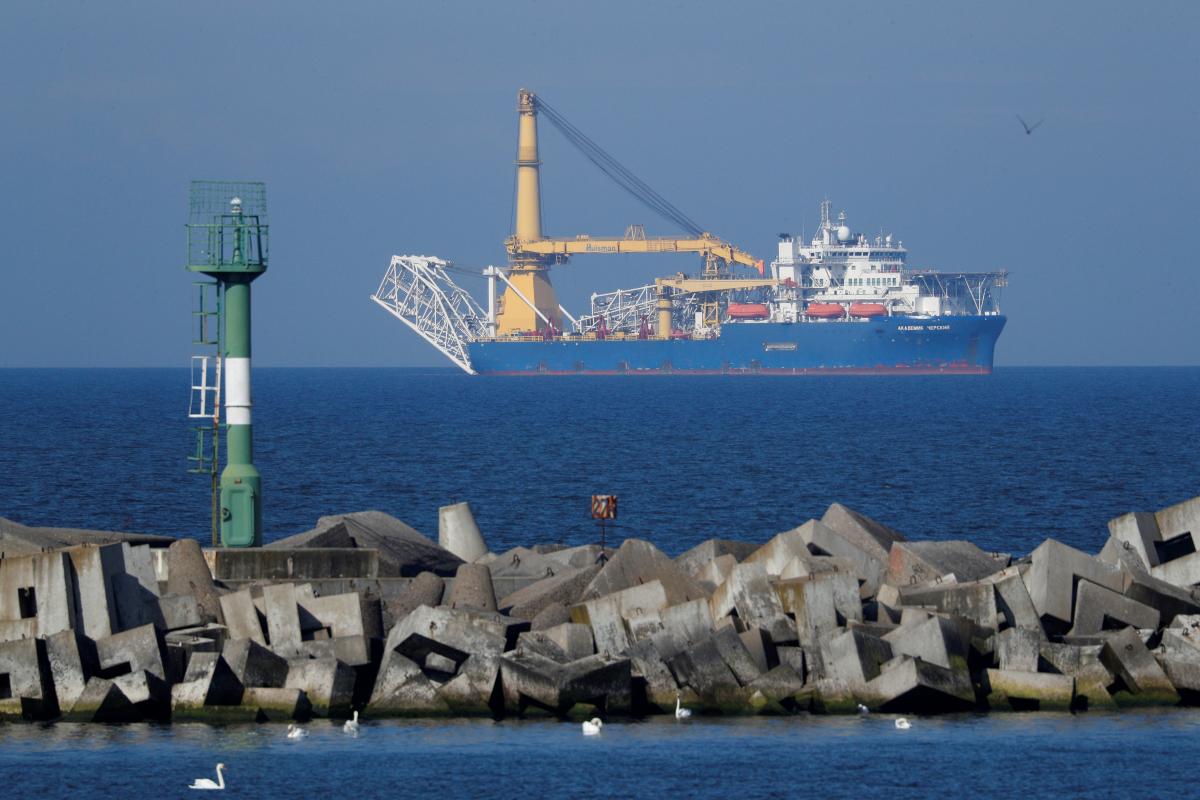
Ukrainian President Volodymyr Zelensky and his Polish counterpart Andrzej Duda have discussed by phone the issues of energy security in Europe, including the Nord Stream 2 project.
"This project is, in fact, a trap for the whole of Europe. It cannot be allowed. Further boosting of sanctions against this project is a guarantee of Europe's energy security," Zelensky told Duda, according to the Ukrainian president's press service.
Read alsoExperts suggest Nord Stream 2 implications for Ukraine
The leaders coordinated steps to further oppose the Nord Stream 2 project and agreed to involve the international community in this process as much as possible, it said.
Duda agreed with Zelensky that every effort should be made to prevent the construction of the Nord Stream 2 gas pipeline.
The two presidents also discussed measures taken in Ukraine and Poland in the context of combating the COVID-19 pandemic. Zelensky informed Duda on the arrival of the first batch of the Indian-made AstraZeneca vaccine for the immediate launch of a vaccination campaign in Ukraine.
Zelensky thanked Duda for the initiative to provide Ukraine with 1.2 million doses of AstraZeneca, which Poland plans to receive as part of joint EU procurements. The Ukrainian president stressed that this step is a strong signal of solidarity with Ukraine, and expressed the hope that Ukraine will be able to receive that vaccine in March, after the preparation and conclusion of relevant contracts.
A separate topic was the discussion of a number of infrastructure projects near the border between Ukraine and Poland. In particular, the construction and repair of roads and modernization of checkpoints.
The parties agreed to continue an active political dialogue this year, paying special attention to the economic component and the implementation of joint projects.
Zelensky invited Duda to visit Ukraine and personally take part in events dedicated to the 30th anniversary of Ukraine's independence, as well as in the Crimean Platform Summit.
Nord Stream 2: Background
- The Nord Stream 2 project envisages the construction and operation of two gas pipeline branches with a total throughput capacity of 55 billion cubic meters of natural gas per year from the coast of Russia through the Baltic Sea to Germany. It should connect Russia's Ust-Lug and Germany's Greifswald. This new pipeline bypassing Ukraine is to be built next to the existing Nord Stream 1 pipeline.
- The construction of the pipeline was expected to be completed before the end of 2019.
- The pipeline will be 1,220 km long. The project is being implemented by Russia's Gazprom in alliance with European companies – ENGIE, OMV, Royal Dutch Shell, Uniper, and Wintershall. Ukraine stands against the construction of Nord Stream 2 as it will most likely lose its status of a gas transit country, while its potential revenue losses are estimated at US$3 billion annually. The project is also highly criticized by the U.S., Poland, and the Baltic States.
- On November 4, 2020, the media reported that U.S. Congress wanted to expand sanctions against Nord Stream 2 and TurkStream.
- On December 6, 2020, United States Charge d'Affaires to Germany Robin Quinville called on the EU and Germany to declare a moratorium on the construction of the Nord Stream 2 gas pipeline.
- On December 9, 2020, the U.S. House of Representatives approved the 2021 National Defense Authorization Act (NDAA) with expanded restrictions against the Russian Nord Stream 2 gas pipeline.
- On December 11, 2020, the construction of the Nord Stream 2 gas pipeline resumed.
- On December 29, 2020, it became known that the House of Representatives overcame the then President Donald Trump's veto on the U.S. defense budget with sanctions on Nord Stream 2.
- The United States is urging European allies and private companies to halt works on Nord Stream 2, and is preparing broader sanctions against the Russian project in the coming weeks.
- The U.S. Senate approved the U.S. defense budget for the fiscal year 2021, which provides for new sanctions against Russia's Nord Stream 2.
- On January 7, 2021, a fund was established in Germany to support the completion of the Nord Stream 2 project.
- On January 13, 2021, the U.S. Department of State notified European companies involved in the construction of Nord Stream 2 of the risk of imposing new sanctions.
- On February 22, 2021, the United States imposed new sanctions on the Russian FORTUNA vessel building Nord Stream 2.
- As of February 23, 2021, eighteen European companies at once refused to complete the construction of Nord Stream 2 over the U.S. sanctions.

